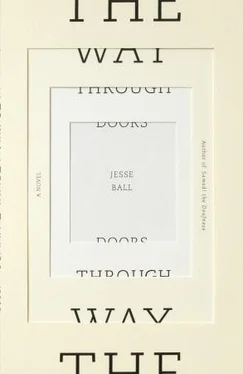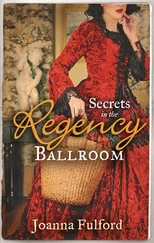— Do you have anything that belonged to the girl? asked the clerk’s wife. A sock? A scarf?
— I have her shoe, said S.
Out of a secret pocket he produced one of the two espadrilles that the girl was wearing during the accident.
— What a nice shoe, said the clerk’s wife.
— You were carrying that all along? asked the guess artist.
— No, said S. It just occurred to me now.
The clerk held the espadrille for the dog to smell. He sniffed at it with his nose, then ran away into the pile of letters. Sometimes he climbed and sometimes he swam through them. Soon he had disappeared from sight.
— If anyone can find it, said the clerk, Whirligig can. He’s quite a pup.
— Where did you get him? asked S.
— He was in a package that came here, said the guess artist. She heard barking coming out of a box; she opened it up, and there he was.
— Actually, said the clerk’s wife, he was a gift from my sister, who lives in Idaho.
— But how did he arrive? asked the guess artist. Truthfully, now.
— In a box, said the clerk’s wife. Wrapped up in a sweater.
— That’s no way to send a dog, said S.
— But in this case, said the clerk, it worked just fine.
— Nobody’s disputing that, said S.
— The other day, said the guess artist, I was down by the harbor and I saw the most horrible sight.
Everyone looked at him.
— A seagull was flying about, as seagulls often do. However, this one tried to fly beneath a dock, and it fetched up against one of the wooden supports. It must have broken its wing, because it fell there, right in the shallows, and was splashing around but going nowhere. Out from beneath the dock then came a large swan. It came closer and closer to the seagull, came right up over it and began to tear at the seagull with its beak. It started tearing off pieces of the seagull, eating it while it was still alive. I’ve never seen anything like it.
— That’s horrible, said the dead-letter clerk.
— I wish I had never heard that, said the dead-letter clerk’s wife.
S. nodded slowly to himself; he knew well the true nature of swans.
Just at that moment, Whirligig reappeared from the pile. He was carrying two letters in his dandy little mouth. He ran up to S. and dropped them at his feet. S. patted him on the head and picked up the letters.
The first letter came in a richly embroidered envelope. There were traces of gold in the fibers of the paper, and the address had actually been embroidered on. It said, Selah Morse, God Knows Where. He put that envelope on the bottom and picked up the other. It was a simple white envelope, one of the official sort that you buy at the post office, where the letter folds into being the envelope. This one said nothing on the outside. He opened it.

14 Beard Street
Brooklyn, NY
Soon.
Or else.

He narrowed his eyes.
— Very strange, he said, and his voice was loud in his ears.
— We had best be going, said the guess artist. — But the other letter, said the clerk’s wife.
— It’s from his sister, said the guess artist. She died some time ago. I don’t know that he was ever meant to see that letter.
— Then give it back to me, said the clerk’s wife. She took a hold of the letter and began to pull it out of S.’s hand.
— No! said S. That’s my letter. Let go!
The two were pulling back and forth on the letter. Whirligig began to bark and nip at the ankles of S. and the guess artist. Just at that moment, the aperture in the ceiling opened and letters began to pour in, pouring down over the pile, increasing its size with every second. The noise was tremendous. Also, the clerk began to shout.
The clerk’s wife pulled the letter away from S. and ran off. He chased after her, but she was very fast, and also good at running on top of piled letters, which S. was not. She made it away past a sort of small portcullis, which she brought down immediately. S. halted before it.
— I’ll be back for that letter, he said.
— Not on your life, she said. My husband’s going to cut it up with his shears.
— You wouldn’t do that, would you? asked S.
But the clerk was running around in circles, shouting and trying to save his home from the incoming flood, with Whirligig at, before, and around his heels. The mail continued to pour out of the ceiling at an increasing rate.
— We’ve got to go, said the guess artist.
— I guess you’re right, said S.
Together they ran, half-bent over so their heads wouldn’t knock against the low ceiling, back up one passage, then another, and out of the lower reaches of the post office.
As they reached the main level, they stopped, huffing and puffing, to catch their breath. The security guard came out of an alcove and shone a light on them. Everything was very quiet and still. None of the chaos they had seen below existed here.
— Odd down there, isn’t it? he asked. I never go down there after dark.
— Who’s in charge of this place? asked S.
— There’s a big computer somewhere, said the guard, made out of wood. That’s what they make computers out of nowadays, the really fast ones, anyway.
— Right, said the guess artist. Well, good-bye.
Out, then, the front doors, and into the night.
— Should we go to the address now? asked S.
— It seemed urgent, said the guess artist. Not much else to be done about it, don’t you think? Do you know where to go?
— I do, said S.
The two were quiet a moment. S.’s hands were making a sad expression, one not betrayed by his face or eyes.
— I wonder what that letter said.
— Probably something kind and useless, said the guess artist. You can assume that much.
The guess artist patted the municipal inspector on the shoulder.
They went down through the pavement and through a turnstile. A subway car drew up immediately, as though it had been waiting for them. The guess artist wondered how long it had been waiting there. The municipal inspector thought some more about his sister’s letter and how horrible it was that he hadn’t gotten to read it.
They sat down. The train began to move.
The municipal inspector took something out of his sleeve. He unfolded it, and as he unfolded it, it became bigger and bigger. The whole thing was covered in child’s writing. It was in red crayon, with occasional blue and green. S. looked at it intently. He mumbled to himself and moved his finger over it slowly.
The train passed on at great speed.
— This must be the express, said the guess artist.
S. murmured something noncommittal.
— What is that? asked the guess artist.
— A map, said S.
— Of what? asked the guess artist.
— Can’t you guess? asked S., a bit brusquely.
He was still bothered by the loss of his sister’s letter. Should he go back and try to claim it later? he wondered to himself. No, no, it was lost forever. He shook his head and returned to the matter at hand.
The guess artist was peering at him.
— No, I can’t, he said. Where this map is concerned your mind is…blurry. I can’t tell a thing.
— Well, it IS an odd business, said S.
He pointed to a spot on the map.
— We’re here, he said.
The guess artist nodded.
— Is that me? he asked.
There was a drawing of a man with question marks shooting out of his head. As the guess artist looked closer at the drawing, it seemed to get larger and more detailed. He could almost make out his face.
Читать дальше













